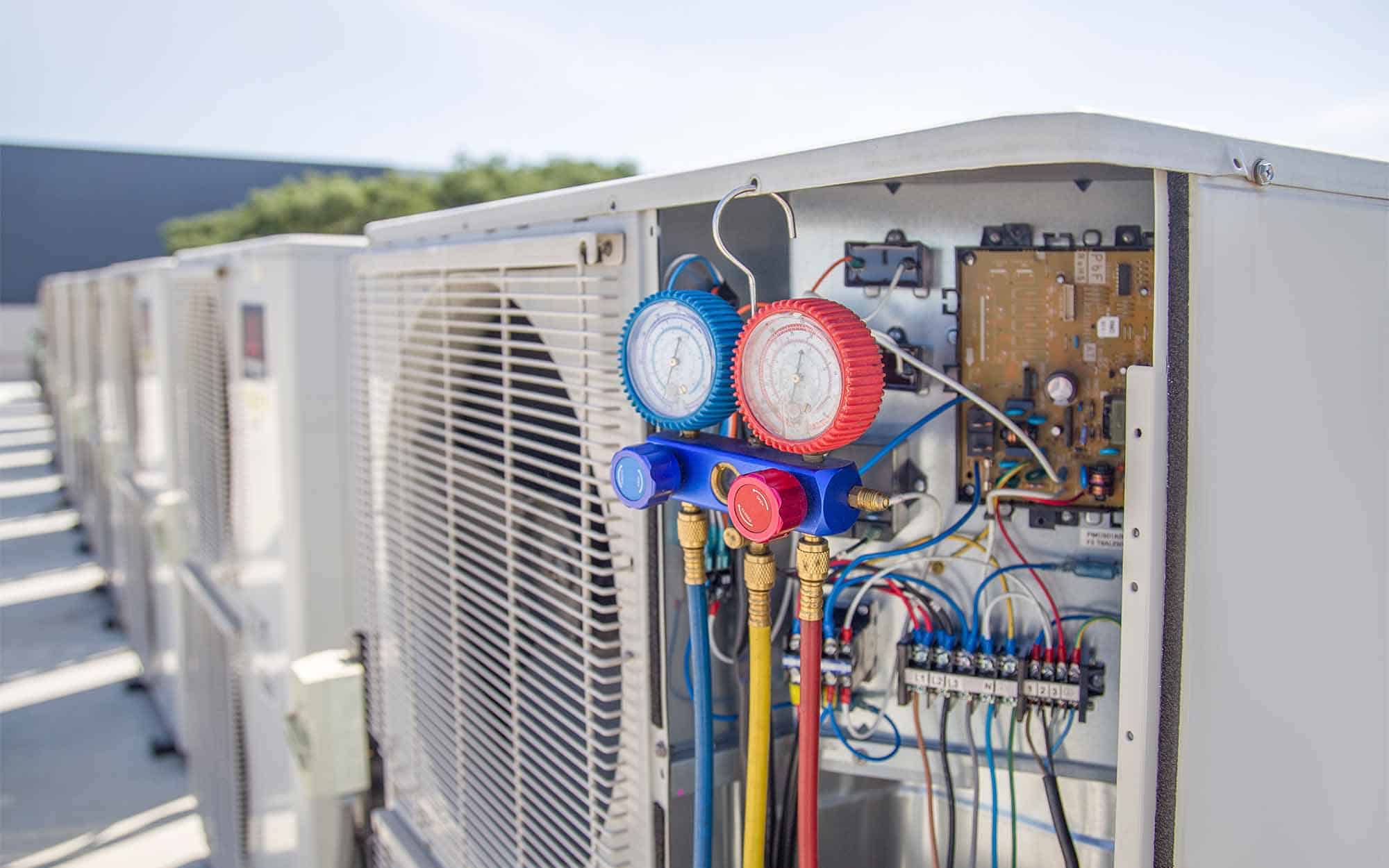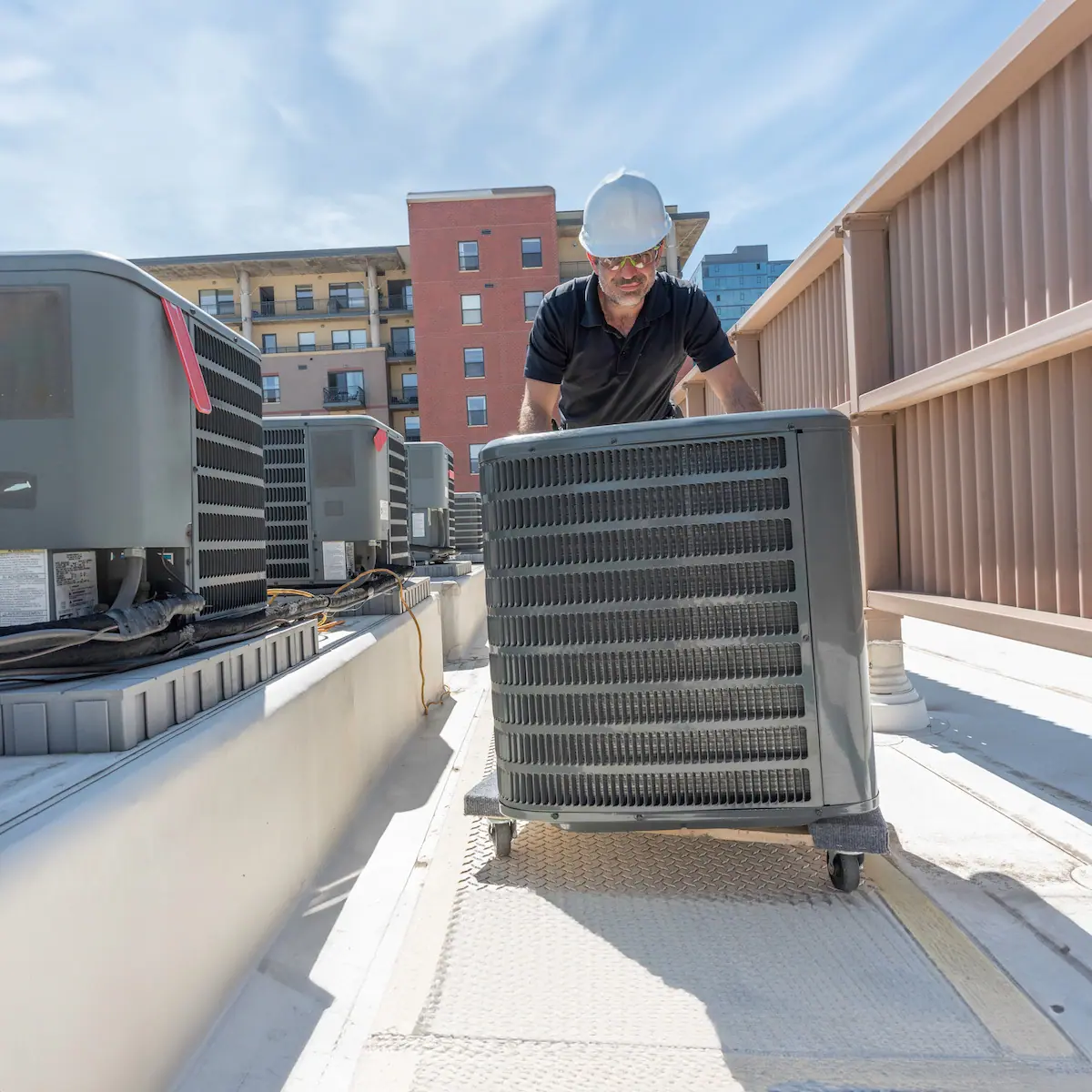The Relevance of HVAC Setup: Trick Factors To Consider for a Comfy Indoor Environment
The installation of a HVAC system is an essential part in accomplishing an energy-efficient and comfy indoor setting. Factors such as the viability of the system for certain structure requirements, appropriate sizing to circumvent inadequacies, and the experience of specialists for a quality installation play essential roles. The fostering of advanced modern technologies can considerably boost system performance.
Picking the Right System

When selecting a cooling and heating system, it is vital to review the ability called for to properly heat or cool the space without overworking the system, which can result in enhanced wear and operational prices. Consulting with a professional heating and cooling professional can offer important insights into picking a system that straightens with both the anticipated usage and the architectural design patterns of the building.
In addition, taking into consideration the combination of smart technology can enhance system monitoring and surveillance, using higher control and potential cost savings. By meticulously assessing these variables, one can guarantee the selection of a HVAC system that not just satisfies immediate demands yet additionally contributes to long-term functional sustainability and resident comfort.
Recognizing Power Effectiveness
Recognizing power efficiency is important when considering a Cooling and heating installation, as it directly affects both the ecological impact and the operational prices of the system. The effectiveness of a HVAC system is generally suggested by scores such as SEER (Seasonal Power Effectiveness Proportion) for air conditioners or AFUE (Yearly Gas Usage Effectiveness) for furnaces.

Buying an energy-efficient heating and cooling system not just equates to set you back savings yet likewise contributes positively to ecological conservation by lowering greenhouse gas exhausts. Furthermore, numerous territories provide incentives or rebates for the installment of high-efficiency systems, even more improving their economic allure.
When evaluating energy performance, consider advanced attributes such as variable rate electric motors, clever thermostats, and zoning capabilities. These technologies improve the system's ability to get used to differing demand, consequently enhancing energy use. It is vital to talk to heating and cooling specialists who can give understandings into the ideal options customized to certain environment problems and usage patterns, making sure optimal performance and convenience.
Importance of Appropriate Sizing

On the other hand, an undersized cooling and heating system will have a hard time to get to the desired temperature level, particularly throughout severe weather. This can cause continuous procedure, leading to higher power expenses and possible overheating of system components. Furthermore, poor sizing can lead to inconsistent temperature level circulation, triggering certain locations of a structure to be as well cozy or as well great.
To attain the appropriate sizing, a comprehensive tons estimation is necessary. This includes examining different aspects such as the building's square video footage, insulation degrees, home window kinds, and regional climate conditions. By accurately establishing the heating and cooling needs of a space, heating and cooling experts can suggest systems that guarantee efficient operation, lowered power consumption, and enhanced interior convenience.

Guaranteeing Top Quality Installation
A smooth heating and cooling installment is the foundation of a system's longevity and performance. Ensuring quality setup includes precise focus to detail, adherence to market standards, Check Out Your URL and using skilled experts. The procedure begins with picking a licensed and experienced HVAC service provider. This expert ought to possess comprehensive knowledge of varied systems and be experienced at assessing the specific requirements of the structure.
Appropriate setup goes past mere placement of devices. It entails specific calibration to make sure ideal airflow, reliable energy usage, and uniform temperature distribution. This consists of exact ductwork installment, making sure connections are leak-free and safe, which is crucial for maintaining system performance and interior air high quality.
Furthermore, the execution of sophisticated analysis tools throughout setup can spot prospective problems early, stopping costly repair services and prolonging the life expectancy of the system. The contractor must additionally guarantee that all elements are compatible and that the system abides by local building ordinance and regulations.
Routine Maintenance Practices
Once the structure for a high-performing heating and cooling system is established through top quality installment, the emphasis ought to shift to regular maintenance methods to make certain ongoing efficiency and integrity. Routine maintenance not only prolongs the life-span of the system but likewise enhances interior air high quality, decreases power consumption, and stops costly repair services. Necessary upkeep tasks include on a regular basis link altering air filters, cleansing evaporator and condenser coils, and checking the system for leakages or blockages.
This simple job can dramatically enhance air circulation and system effectiveness. Furthermore, professional specialists must check the system every year, examining for refrigerant degrees, electric links, and total system performance.
Attention to ductwork is also vital; sealing and cleaning up ducts regularly stops air loss and contamination. Carrying out an upkeep routine ensures that minor problems are dealt with before they escalate, securing the system's functional stability. By sticking to these upkeep techniques, homeowners can maximize their heating and cooling system's functionality and keep a comfortable indoor environment year-round.
Verdict
By picking a suitable system customized to particular building needs, comprehending energy effectiveness, and making sure appropriate sizing, inadequacies can be reduced. The participation of knowledgeable specialists guarantees high quality installment, while the integration of sophisticated technologies enhances system efficiency and surveillance.
Several types of Heating and cooling systems are readily available, consisting of split systems, hybrid systems, duct-free systems, and packaged heating and air systems, each with unique advantages and constraints.
Comprehending power effectiveness is essential when thinking about an A/c setup, as it directly impacts both the ecological impact and the functional prices of the system. The performance of a HVAC system is normally shown by scores such as SEER (Seasonal Power Effectiveness Proportion) for air conditioners or AFUE (Yearly Gas Utilization Efficiency) for furnaces (Plumber in Brownwood TX).As soon as the structure for a high-performing Cooling and heating system is developed via quality installation, the focus ought to move to routine upkeep methods to make sure continued efficiency and reliability. Additionally, professional technicians should evaluate the system each year, examining for refrigerant levels, electric connections, and overall system performance